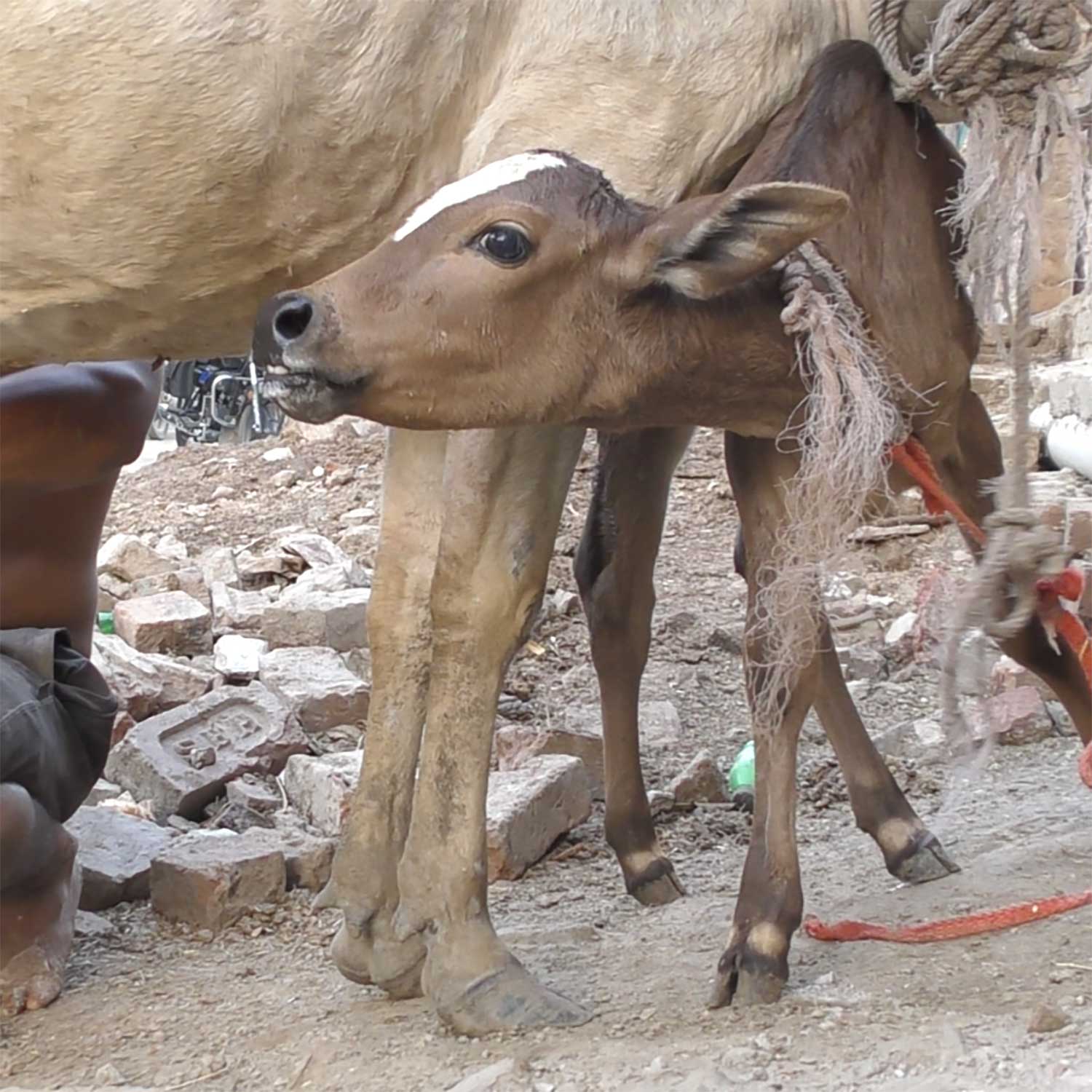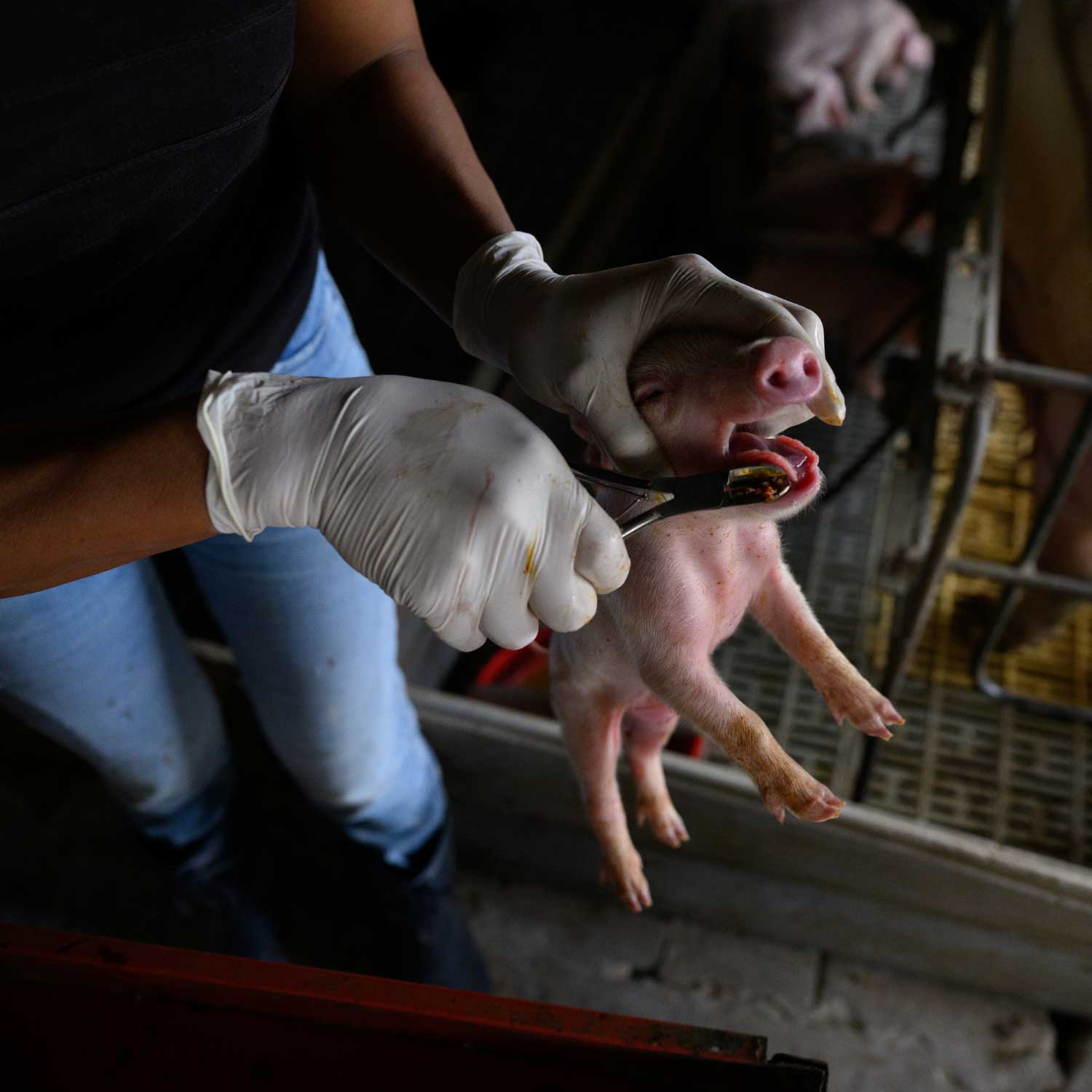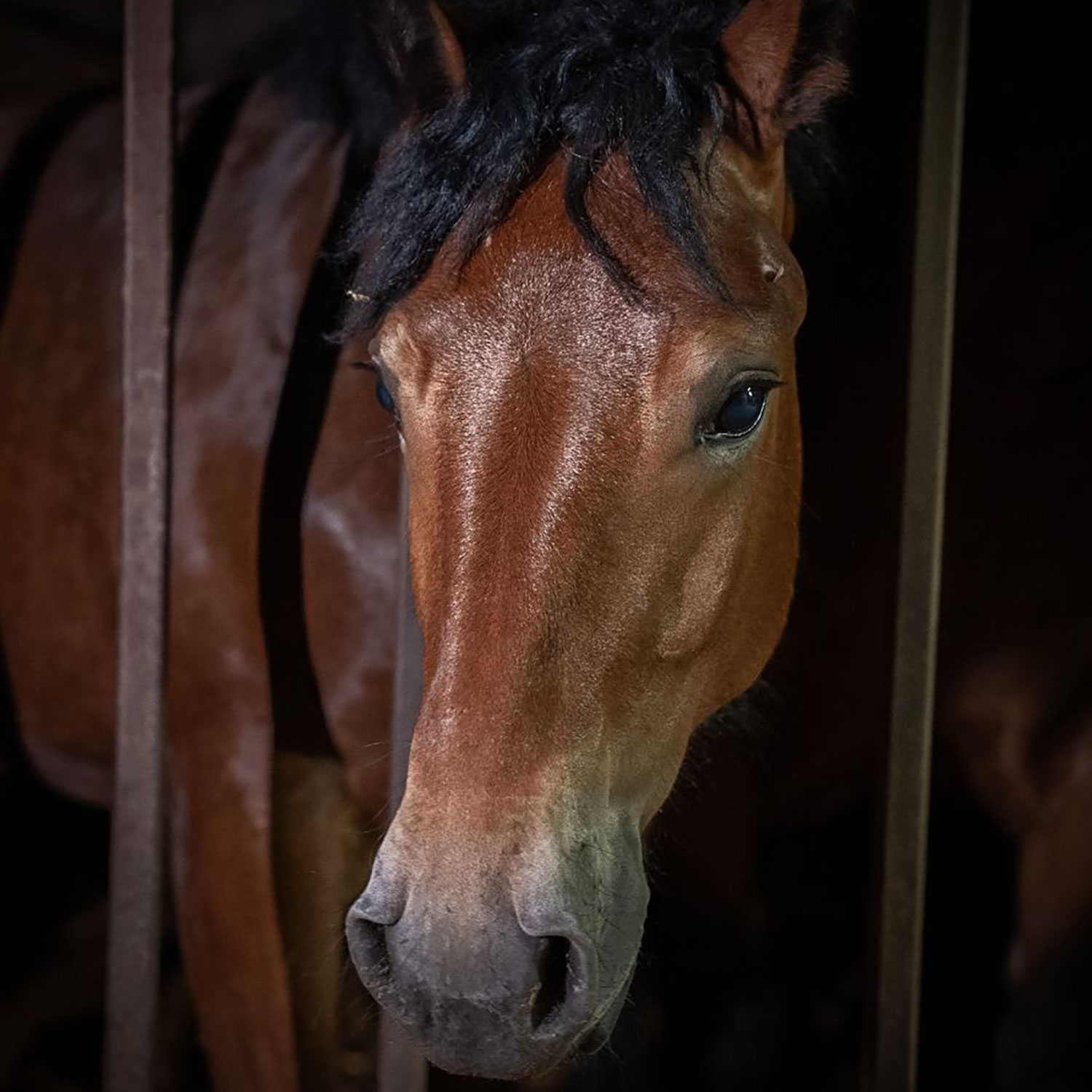Investigation: Chickens Unable To Walk, Living Among Dead
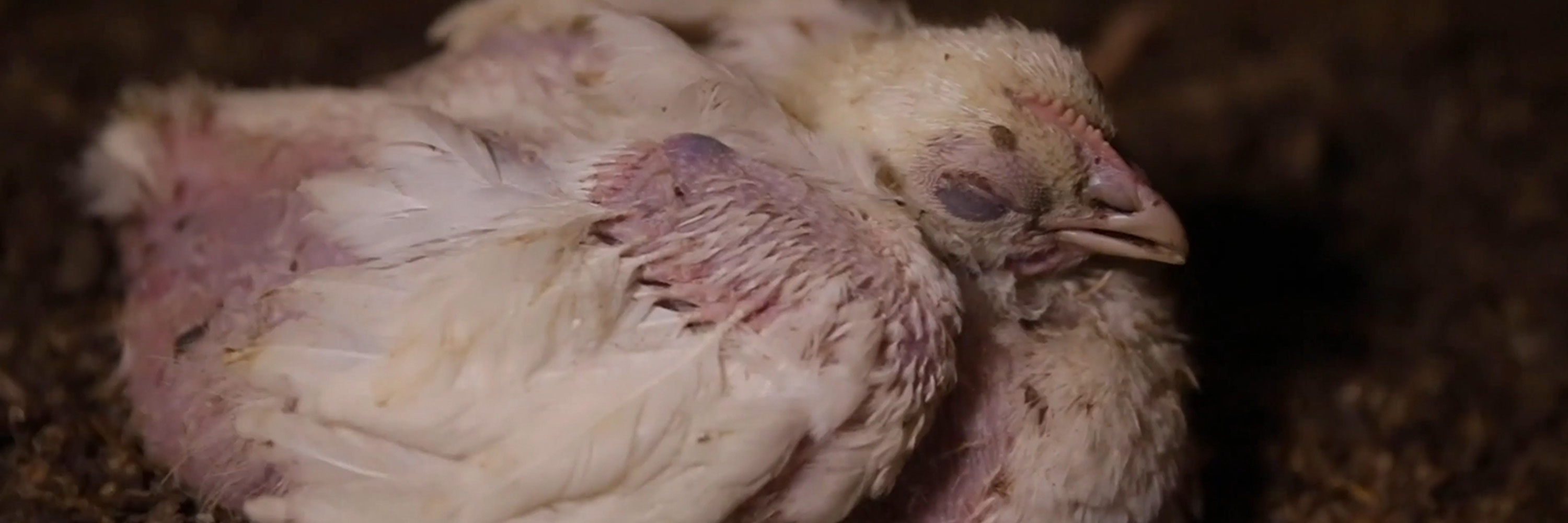
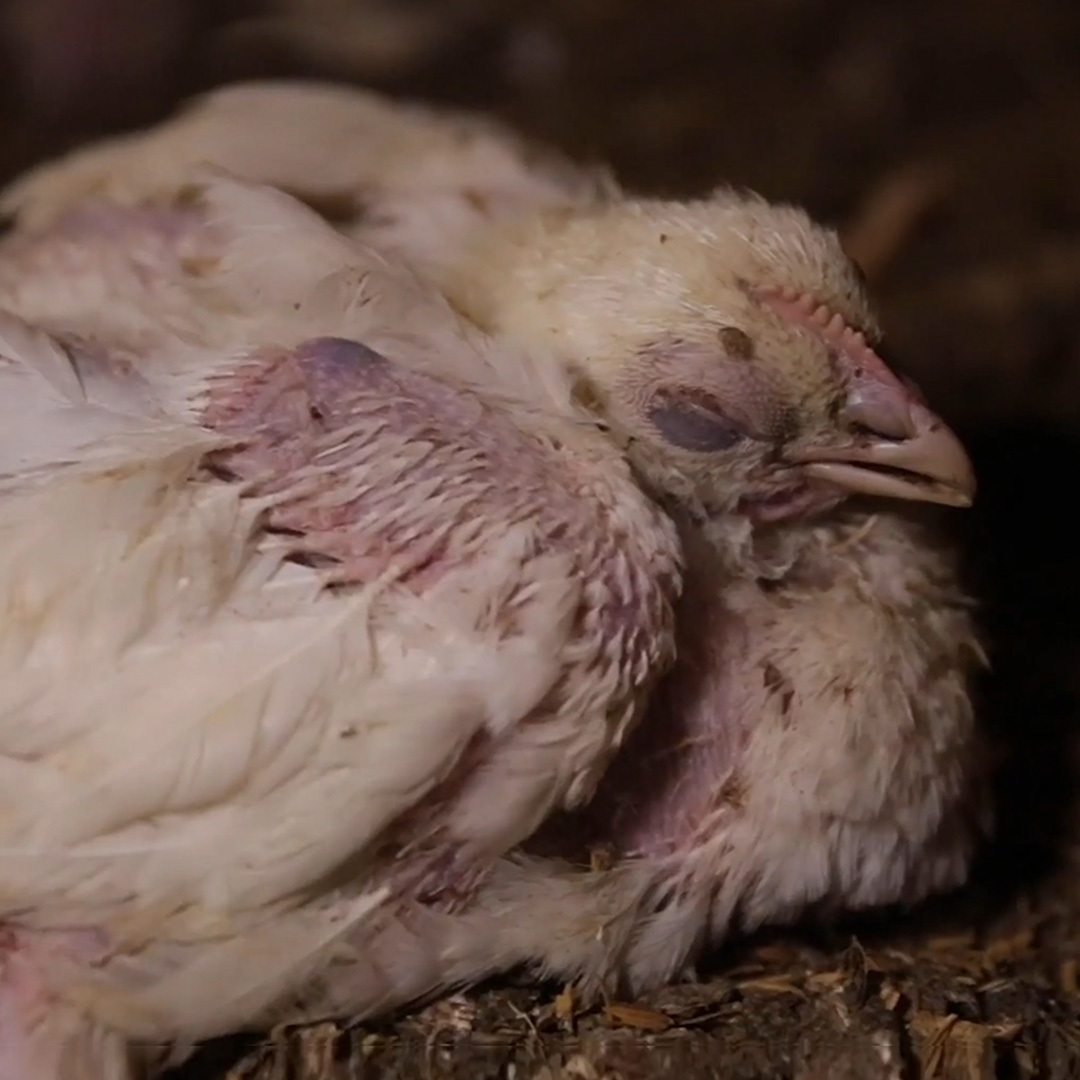
More than 550 million chickens are slaughtered every year in Italy. These animals belong to what is called “fast-growing” breeds, chickens that humans have selectively bred to grow unnaturally quick and large for human consumption at the lowest possible cost.
Approximately 99% of the chickens killed for their meat in the U.S. are also of these fast-growing breeds.
In Animal Equality’s latest investigation, our investigators expose the filthy living conditions and the animal suffering due to the selective breeding of these chickens. This investigation was carried out several times from 2019 to 2022 on a large farm in Northern Italy, where nearly one million chickens are crammed into two sheds yearly.
Among the findings from this investigation:
- A chicken left to suffer from injuries as a result of his massive weight and fragile skeleton;
- Chickens living in manure and urine-soaked litter that burns their skin;
- Chickens living among their dead and decaying companions;
- Chickens slumped on the ground in a “splay leg” position because of their joint and muscle problems due to their size;
- Chickens struggling to walk to their water troughs and feeders – many die from starvation or thirst;
- High mortality rates with numerous dead and decaying animals
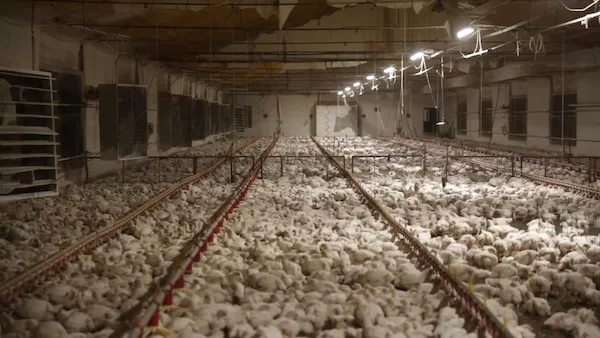
The results that emerged from this investigation reaffirm the urgency to raise awareness among citizens about what really happens in intensive farming. Chickens are highly intelligent animals, with complex social characteristics. As sentient beings, they cannot be confined to places of this kind, forced to live in constant degradation and suffering due to a selective breeding that looks only to the industry’s profits.
Alice Trombetta, Executive Director for Animal Equality Italia
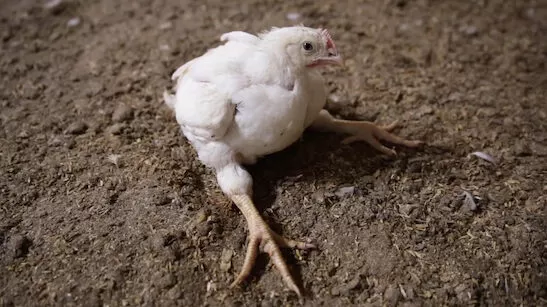
Chickens bred and killed for their meat are living not only under the pain and weight of their own bodies, but also inside filthy and overcrowded farms without fresh air or natural light. At Animal Equality, we denounce this cruelty and ask you to do the same by eliminating this suffering from your diet.
Sharon Núñez, President for Animal Equality
How you can take action:
Chickens bred and killed for their meat are prisoners in their bodies, forced to live among their dead companions. These animals endure not only the consequences of selective breeding but also the effects of their filthy living conditions. These practices in factory farming are cruel and unnecessary, all at the expense of the animals while the industry profits.
The images from this investigation show just how inhumane factory farming is. By sharing this investigation, you are helping shed light on these practices and giving a voice to the animals that suffer for food!
The best and most simple way to denounce the suffering of animals on factory farms is by making compassionate food choices. By choosing plant-based alternatives, you are eliminating this cruelty from your plates. Enjoy cruelty-free meals with recipes from LoveVeg.com.

